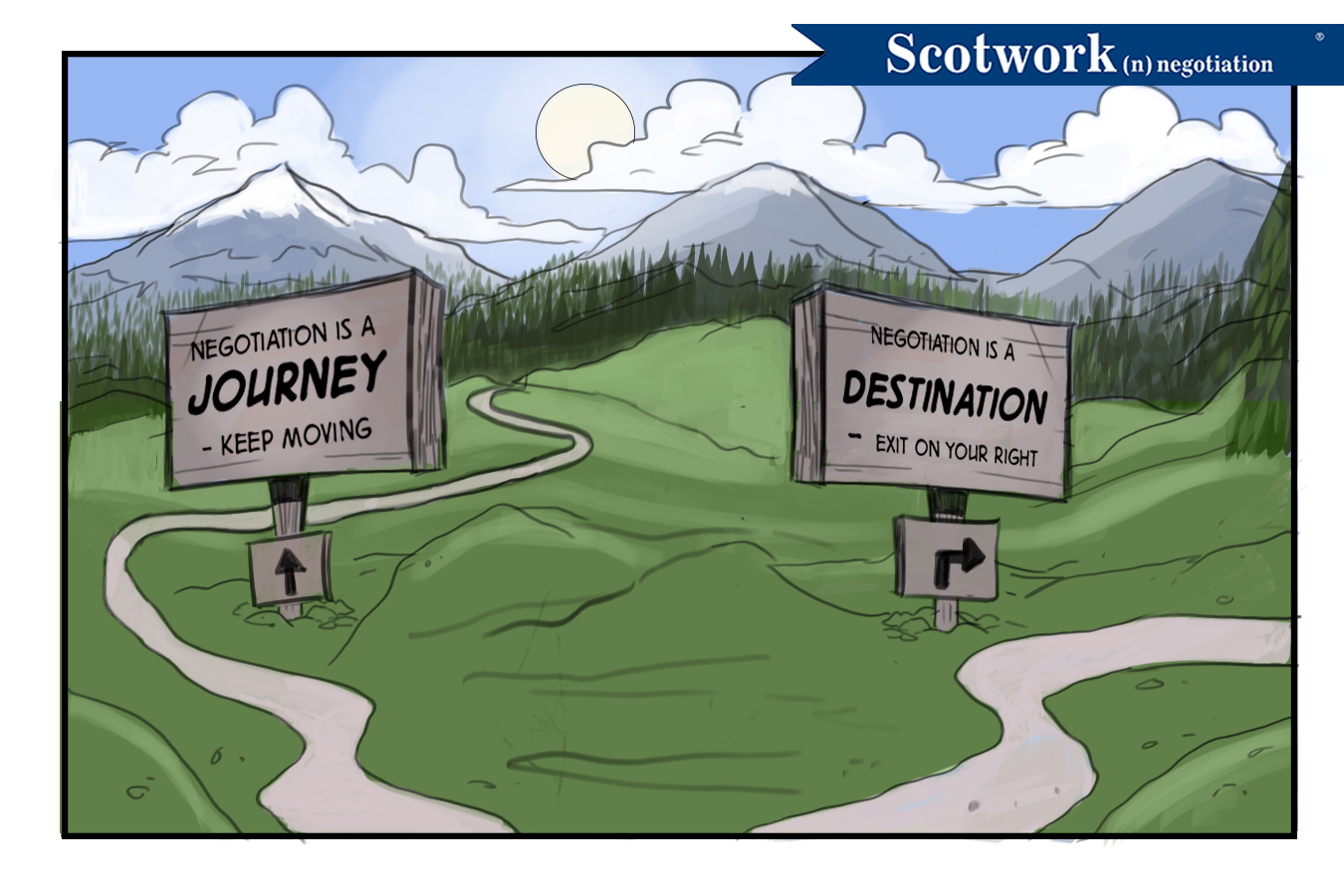Recently, my son, a second-year NROTC midshipman in college (Marine Corps option — #proudpops), took part in a ten-mile “hike” with his fellow Marine-option classmates. This was not a normal hike. It was uphill, in full gear, with a 70-pound pack strapped on. He recounted the event to me as I visited him at his college house (and picked up the pack myself to assess what this appendage would feel like on such a hike). Something he said stood out to me in a profound way that made an instant connection to my world of negotiation:
“The destination is NOT the mission."
As these young men and women marched onward and upward toward their destination, they received encouragement from their peers and their superiors alike to press on, not fall out, and finish strong. As they neared the summit, they could see the marker that indicated they were almost finished. Rest, relief, and reward lay just ahead. Their weary bodies longed for that moment as it approached them at what must have felt like a snail’s pace by this point of their journey. Then something unexpected happened: Their zealous leader, barking out commands fit for a battlefield, urged his subordinates to keep going, press onward — way beyond their destination: “You are not finished!” “This is the destination, but now the mission begins!”
This was the last thing they wanted to hear, but the message was received loud and clear. In debrief, he explained to them that “the destination is NOT the mission.” The destination only gets you to the place where the mission begins. You have to prepare yourself for when the battle begins, not merely for getting to the battlefield.
This is so illustrative of negotiation. The work of preparing for the negotiation is not the mission; rather, it is what readies you for the mission. It gets you to the battlefield. Now the battle begins. How you prepared will determine if you are ready for the actual negotiation or just getting to the table.
In negotiation preparation, many unskilled negotiators prepare only on their side of the table. They ready themselves only so far, ensuring that they are prepared to make their demands and positions known, taking into account solely what information they will share, what concessions they will make, and when they will walk away. They rightfully prepare on their side of the table (getting to the battlefield), but often fail to be ready beyond that point. Unfortunately, that is not being ready for the mission. You have to prepare your negotiations by carefully planning for what you will encounter from your counterpart. What will they demand of you? What do they need from you? What are their inhibitions and interests? What concessions might they be willing to make? What information will they share or withhold? At what point will they walk away?
Only by preparing in this manner will your engagement with your counterpart have the best chance of resulting in deals that work. You will be more curious. You will ask better questions as you test the assumptions you made when preparing. You will be more prone to exhibit good negotiation dialogue and not resort to mere persuasion or competitive negotiation tactics. You will be in the best position to integrate the interests of both sides and make proposals that get accepted.
Negotiation preparation is a long, hard, uphill climb of thinking double and preparing on both sides of the table. It takes time and there are no shortcuts, but you will be ready for the mission — i.e. your negotiation — and not merely the destination of getting to the table.
Be Mission Ready
If you want to learn to prepare effectively for getting to, and negotiating at, the bargaining-table battlefield, we can help! We can be your advisor, your coach, and your trainer. Whether you bring us in to create your strategy, to assist you with preparation, or to develop your team’s negotiating skills, we can help you win at the negotiating table.
We’ve been consulting and teaching our proven negotiation methodology for over 40 years. We know the process, we can identify the skills required, and we have the techniques to negotiate better deals for you. Call us and let’s discuss what we might be able to do for you.

